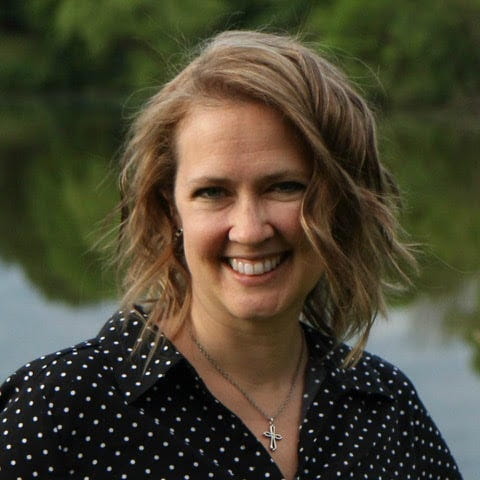
God designed us to need others. There’s no getting around it, though we might try.
As John Donne said in a poem written almost 300 years ago, “No man is an island.” None of us are made for isolated living. The enemy knows this. He constantly works to destroy healthy relationships by distorting our view of forgiveness so that we live bitter and alone rather than free and connected.
Our skewed definitions, or expectations, of forgiveness can keep us from the freedom it brings. They may block our ability to experience what God provides.
Here are 9 important things to know about forgiveness—what it is, and what it isn't.
Photo Credit: unsplash/lina-trochez

1. Forgiveness Is Not Forgetting
The phrase “forgive and forget” misses the bigger picture of how forgiveness works and denies the healing power of the process. Forgiving and forgetting are two separate issues. They are often linked, but in unhelpful and even manipulative ways that can actually make it harder to heal.
Past actions and ongoing patterns make us aware of things we need to pay attention to. We learn from the past, about ourselves and others, so we can respond in healthier ways in the future.
When we forgive, painful events surface less, details fade, and overall emotional/physiological responses lessen.
Forgetting is a natural byproduct of healing, but it could also indicate the lack of it. When painful thoughts and feelings are ignored, they hide. The heart remembers what the mind doesn’t.
We need to identify real and perceived injustices, call them what they are, and work through associated painful thoughts and emotions. By facing the truth with humility and honesty, we experience the blessings of forgiveness.
Photo Credit: unsplash/liam-simpson

2. Forgiveness Is Not Condoning Harm
Forgiving someone doesn’t mean the hurt doesn’t matter and is never remembered. It means past harm becomes informative rather than intrusive.
I’ve hesitated to actively engage in forgiveness because I believed it meant the offender got away with wrong, or that it would enable them to continue acting in harmful ways. This belief kept me bound to pain rather than freeing me from it.
Denying the process of forgiveness keeps us tied to the offender and the offense. Wounds remain open and pain reignites.
It’s easy to believe forgiving someone means they get to keep harming us, but it’s not true. We get to decide how to set limits against harm—and we need to.
What others do is their responsibility, and our forgiveness leaves that responsibility with them.
Photo Credit: GettyImages/PredragImages

3. Forgiveness Is Not Forced
While forgiveness is a necessary and vital component of a vibrant life of faith, it’s never forced. Our heavenly Father doesn’t make us act on His will. Jesus wasn’t forced to forgive. It’s a free gift to all who will receive it.
“You just need to forgive.” These words are tossed around in an attempt to move someone past pain, but it’s not really about forgiveness. It’s about reprieve, for the offender or the offended.
Telling ourselves, and others, we have to forgive does little to engage with the heart of God for us.
The source of forced forgiveness is self-protection and pride; true forgiveness is fueled by love. And only loving forgiveness has the power to release pain and receive healing.
Photo Credit: pixabay/Antonio-Jose-Cespedes

4. Forgiveness Is Not Trust
Forgiveness involves trust, but it isn’t the same as trusting an offender. Who we trust makes a difference in our ability to forgive in healthy ways. Will we trust the offender, ourselves, or God?
Since forgiveness is a personal process of releasing and receiving from God, it doesn’t require anything from the other person. Trust, however, is built on vulnerable and humble actions. It takes time to strengthen.
If someone says you should just forgive and trust them, consider it a red flag. Take your time and let them demonstrate trust-worthy actions. You can forgive first and let trust come in its own time.
Choose to entrust your pain, healing, emotional volatility, and valid desire for justice to the God who fully understands suffering and forgiveness. This is the trust that leads to healing and freedom.
Photo Credit: GettyImages/natasaadzic

5. Forgiveness Is Not Reconciliation
Forgiving makes way for reconciliation in relationships, but it doesn’t guarantee it. The two are often expected to occur together, but that expectation can be damaging.
It takes one person to initiate forgiveness. Although the experience is richer if it involves confession from the other person, forgiving what others never admit to will still bring healing.
Reconciliation requires two humble people willing to take responsibility for their actions. If the offender is convicted, and confesses with vulnerability and empathy, preferably for specific actions, reconciliation has a healthy foundation.
Photo Credit: GettyImages/Weedezign

6. Forgiveness Is about the Past
People often ask, “How do I forgive someone who keeps hurting me?”
Honestly, when harm is ongoing, it’s time to set healthy boundaries. Focusing on forgiveness first, especially while someone is still offending, may result in an enabling of that harm.
One of the most helpful things I’ve learned about forgiveness came from Dr. Henry Cloud, co-author of several Boundaries books. He says forgiveness has to do with the past, not ongoing harm. If forgiveness is about the past, it’s about action that’s not currently happening. It releases us from ties to past pain.
I believe forgiveness can occur while offense continues because God’s grace is powerful and available. However, it’s freeing to not feel forced to forgive everything immediately. We often need time to deal with difficult thoughts and emotions before walking through the process of forgiveness.
Photo Credit: GettyImages/oatawa

7. Forgiveness Is an Ongoing Process
Forgiveness doesn’t have to be a grand one-time act. It often happens in stages.
Sometimes, forgiveness is quick and easy, especially if the offense doesn’t hit underlying wounds and unhealthy belief systems. But more often, it requires frequent acts of surrender.
I know many, including myself, who have felt pressured to forgive rather than allow the process of forgiving. Validating pain, walking with others through healing, and dealing with unaddressed injustices can help people heal in stages.
When reminders of pain surface, we need to work through those thoughts and feelings. We need to choose to let God deal with the offender while allowing His comfort to touch us—as many times as it takes.
We may also need to work through real and perceived injustices with a trusted friend or counselor. Unleash Sheets can help too.
Don’t let discouragement stop you when it seems like forgiveness isn’t complete. Continue the process.
Photo Credit: pixabay

8. Forgiveness Is Healing Empowered by God
Patrick Doyle, counselor and owner of Veritas Counseling in Oregon, says that “forgiveness is something God grants.” It’s not something we work up to or a series of hoops we jump through.
We receive forgiveness from God which helps us forgive others.
Forgiveness can’t be contrived. As I mentioned before, it isn’t forced. It’s a constant surrender of our need to right wrongs.
As we let God handle injustice, we learn to trust and find rest from our desire to fix everything.
Photo Credit: unsplash/rohit-guntur

9. Forgiveness Is an Open Door
Choosing to let something go and trusting the outcome and consequences to God takes courage. It’s a brave step toward a future freed from past wounds.
When we forgive, we receive soul-level healing that impacts our emotions and even our physical well-being. We can live healthier lives which impacts our ability to relate to others. Healthier connections not only become possible but probable.
If the idea of forgiving someone who’s harmed you seems too challenging right now, be encouraged to seek God first. Release honest emotions before God in a quiet place or with a safe friend. Allow the hurt to receive care and validation while choosing to trust God in each step of healing as He leads it.
Pray for the offender. Pray God’s blessings for them, which includes humility, confession, and restoration. Release another person’s unconfessed sins into God’s hands. Ask Him to help you confess what’s yours alone to own.
Hold onto hope for what God can do in the life of another and walk forward with what’s true now. May forgiveness lead you into healthier connections with God and others.

Jolene Underwood is an emotional-health warrior and soul-care mentor. She writes from a place of compassion for wounded Christians to encourage and equip them in a life of spiritual growth with emotional health. She draws upon her personal experiences, her psychology background, and a passion for Christian counseling to help others cultivate a life well-lived no matter the circumstance.
Jolene writes regularly at JoleneUnderwood.com. She also leads a community of writers called Rise Up Writers. Her tool, Unleash: Heart and Soul Care Sheets, has helped hundreds experience greater freedom. When she’s not writing, you’ll find her enjoying the journey by laughing with loved ones or adding to her collection of vintage glassware with a 70s flair.
Connect with her online via YouTube/Facebook/Twitter/I
Photo Credit: GettyImages/koldunova
Originally published Thursday, 25 April 2019.



